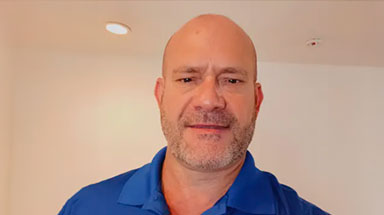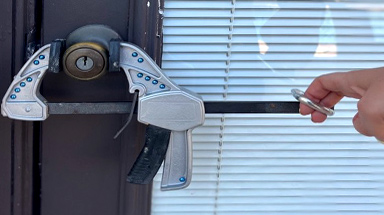About the Program Transform Lives with an MS in Occupational Therapy
The Occupational Therapy Program at Barry University offers an innovative curriculum that leads to a Master of Science degree and prepares you for certification as a registered occupational therapist. On-campus weekend and online sessions are scheduled every semester, so that adults may continue to work or raise their families while preparing for a professional career.
The curriculum is organized in two sequences of courses, the Clinical Foundations and the Advanced Professional Skills. The Clinical Foundations sequence comprises three semesters of clinical coursework.The clinical foundation courses must be taken in sequence. They are followed by the Advanced Professional Skills sequence, which includes three semesters of coursework in advanced topics, leadership and research, including a capstone project. Students then complete 2 semesters of full time equivalent level II clinical experiences.
- The program integrates face to face and distance education.
- The Program’s sequential design prevents transfer of credits from coursework outside of the curriculum. Only 6 credits of graduate work from another occupational therapy program may be evaluated for transfer equivalence. No credit is awarded for work experience.
- Prospective students are expected to have access to and be competent in using computers, including but not limited to word processing and video conferencing software.
- Students are required to have computer access and web cam.
- The faculty at Barry University work as occupational therapists, while teaching on weekends. Their dedication to alternative education for adult learners makes them unique.
- All students are required to complete Level II background checks prior to fieldwork placements. An individual with a felony conviction or positive finding in the drug screening test may be denied participation in fieldwork and eligibility for national certification and credentialing impacted.
Testimonials
-

Melisa Conti, Class of 2018
I am a lifelong learner and this program fostered and fueled my love for learning. One truly unique aspect of the program is the diverse backgrounds of the students (teachers, occupational therapy assistants, IT professionals, and more). This made for having higher level classroom discussions.
-

Karen Hoglund, Occupational Therapist
The program’s academic and clinical training allowed me to enter this distinctive profession fully prepared and with confidence. The professors and support staff helped me to identify and further develop the life skills I already had to become the professional occupational therapist I set out to be!
-

Jamie Williams, Occupational Therapy Student
It's worth commuting from Louisiana twice a month for the unique experience of working full-time and going to school on the weekends. I get the best of both worlds!
-

Laura Polsky, Occupational therapy student
I chose the occupational therapy profession because I enjoy working with people and watching them progress to a better life. When I graduate, I plan to continue working with the traumatic brain-injured population in a community re-entry setting.























